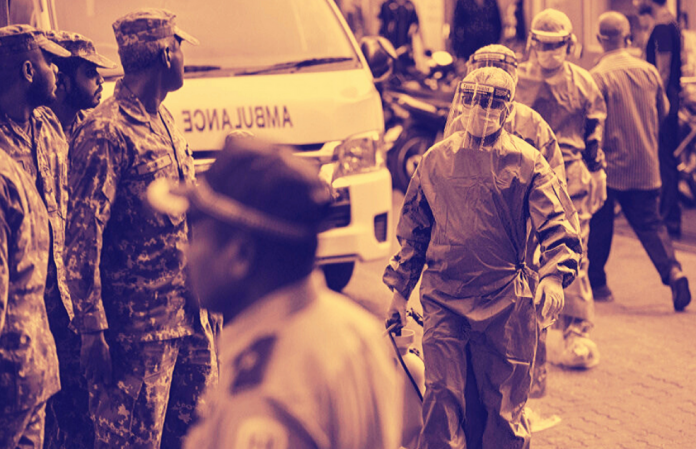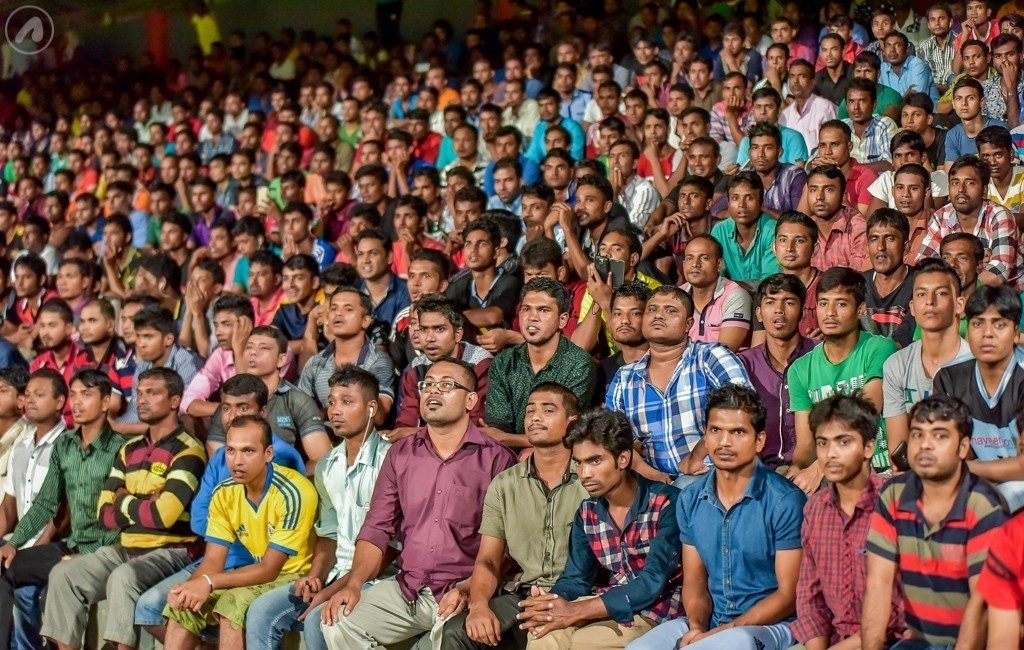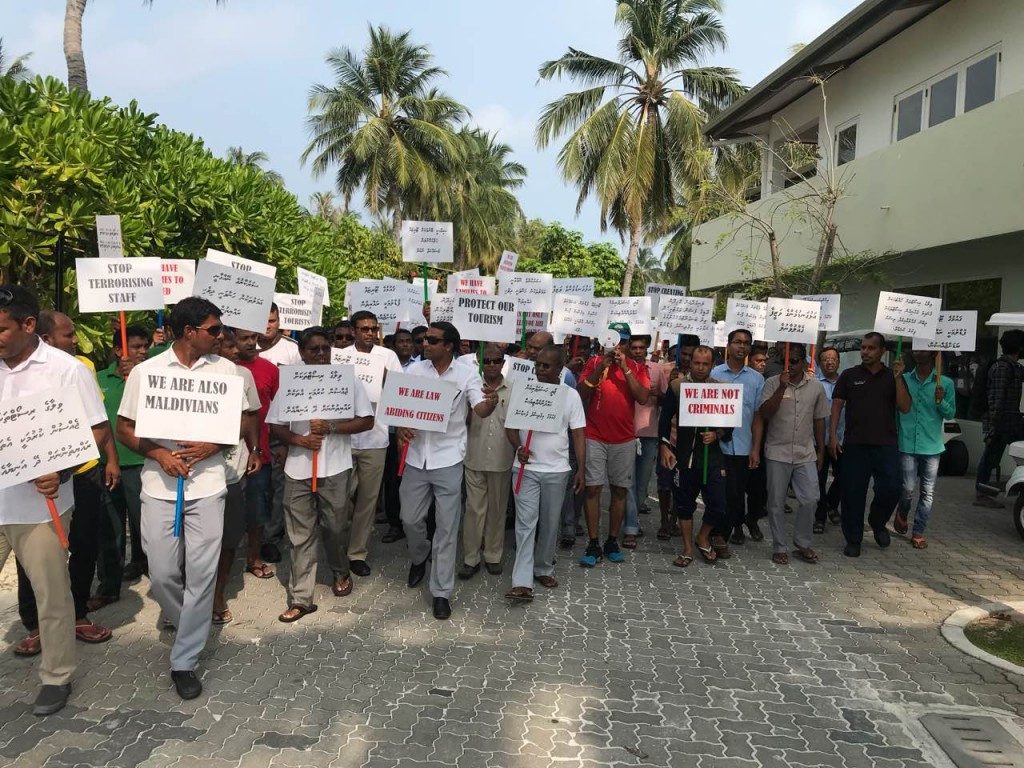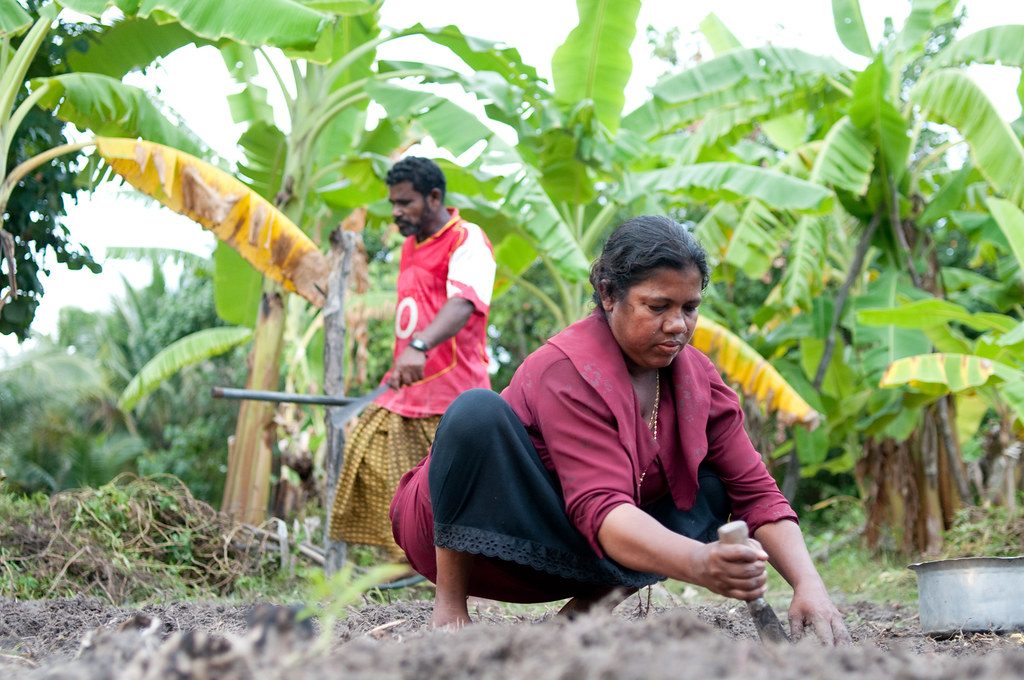
As Maldives tries to grapple the community spread of the COVID-19 pandemic, it has managed to shed light into various other challenges that require attention. Human trafficking, worker rights, housing crisis and food safety are issues speculated from time to time but the ongoing crisis has proved that these issues need to be addressed with severity.
Human Trafficking
Human Trafficking (HT) is a serious crime and a grave violation of human rights and human dignity. Despite the presence of the Prevention of Human Trafficking Act (PHTA), which entered into effect on 8th December 2013, the past 5 years saw a rise in the trafficking of workers in the Maldives, with undocumented workers estimated by Maldives Immigration to number over 63,000.

While confirmed cases has soared to 514, over 55% cases are from these immigrant workers. Majority of this consists of Bangladeshi workers. With aid of the Bangladesh government, so far 70 workers have been repatriated. The government informs that further works are underway to arrange further repatriations and to enforce measures against human trafficking.
Worker Rights
COVID-19 has caused havoc in the Maldivian economy, affecting the lucrative tourism industry most. There has been a number of salary cuts and layoffs, especially in the tourism sector.

According to the Tourism Employees Association of Maldives (TEAM), resort management companies are forcing the workers to sign unfair agreements with pay deduction, forced no-pay leave, and fear of losing their employment. Among these employees are a large number of migrant workers whose livelihood activities are heavily dependent on the tourism industry.
While the state tries to step in to protect the rights of employees’ livelihoods, there is only so much they can do. The economic minister has even stated that the government does not have enough budgets to provide to the freelance workers.
Housing Crisis
Housing is a hot-button issue in the Maldives, where 39 percent of the country’s 341,256 population lives on the 2.2 square mile island of Malé. The community spread was imminent in the capital Male’ city due to this congestion.

The mass migration to Male’ has led to the unavailability of affordable housing becoming one of the most urgent problems we face as a nation. With the COVID-19 toll on the economy, tenants are left at the mercy of landlords. Some are even facing homelessness. While authorities are exhausting their efforts to combat COVID-19 crisis, they now are providing shelter to those in need as well.
Food Security
The COVID-19 pandemic has disrupted global supply chains and caused widespread alarm with regards to food security in the Maldives. As the community continues adapting to life on lockdown, there has been a surge in the struggle for getting essential items. STO has continuously assured the availability of ample food stocks but the government did concede that some food items may come short in supply.

Maldives needs to diversify the imports sources and strengthen the distribution networks. The government, in a bid to ensure food security, has announced a plan to grow food locally.











